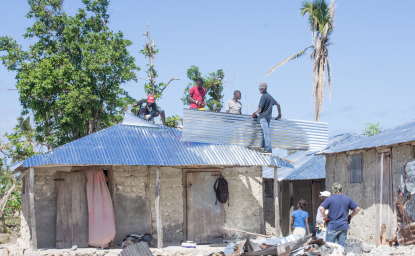<i>Christian Science Monitor</i> Explores Climate Change's Security Risks
DECEMBER 2007—Articles Feature Comments by ECSP Director Geoff Dabelko
DECEMBER 2007—Articles Feature Comments by ECSP Director Geoff Dabelko
Global climate change could further destabilize impoverished, weak states that lack the resources to mitigate or adapt to increasingly frequent and severe natural disasters, rising sea levels, and changing temperatures and precipitation levels, Christian Science Monitor South Asia Bureau Chief Mark Sappenfield reports in his December 6 article Global Warming May Heat Up Conflicts, Too. "Climate change is a threat multiplier," ECSP Director Geoff Dabelko told Sappenfield. "It's not that it creates a whole new set of problems, it's that it will make things that are already a problem worse."
Bangladesh is one country where climate change is arguably already exacerbating pre-existing tensions and contributing to conflict. Bangladesh is densely populated, and most of the country consists of low-lying coastal areas frequently beset by deadly cyclones and likely to be flooded by rising sea levels. Furthermore, the impoverished country is currently embroiled in a political crisis, and Islamic fundamentalist activity is increasing. Flooding of agricultural land has driven many Bangladeshis to migrate to India's northeastern states of Assam and Tripura, where local politicians have helped stir up resentment against the newcomers, who have been met by organized violence.
A companion article highlights six additional places where climate change could aggravate existing tensions and lead to instability:

The Environmental Change and Security Program (ECSP) explores the connections between environmental change, health, and population dynamics and their links to conflict, human insecurity, and foreign policy. Read more



